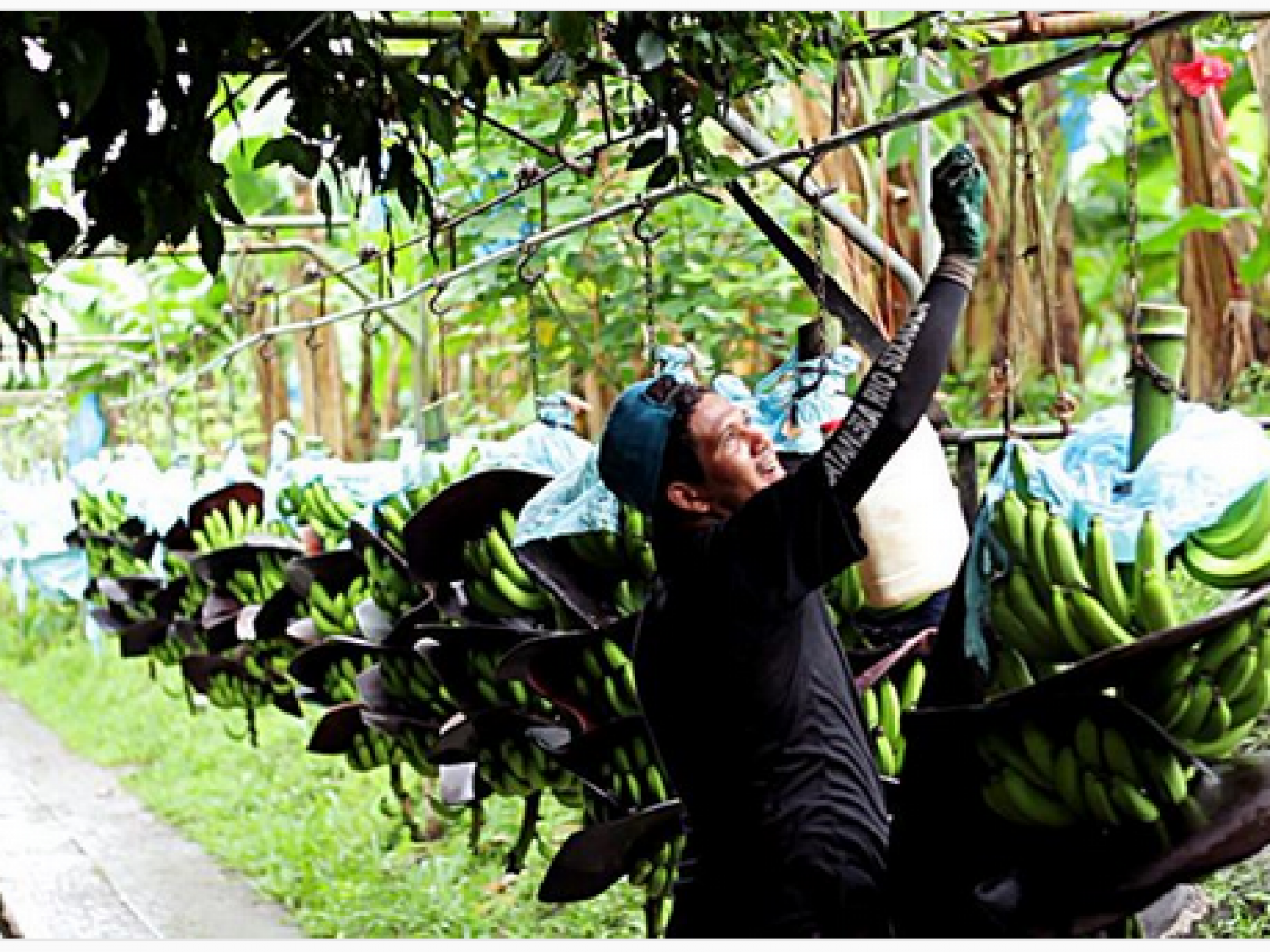An Overview Of Our Solution
- Population Impacted:
- Continent: North America
Organization type
Population impacted
Size of agricultural area
Production quantity
People employed
Describe your solution
Describe your implementation
External connections
What is the environmental or ecological challenge you are targeting with your solution?
Describe the context in which you are operating
PRS believes that conservation efforts and banana production can and should work together. While constructing biological corridors and inviting local and endemic species to the plantation, PRS recognizes that fertile land will be used in a non-banana-productive way, and that part of their production might risk of being damaged by insects, birds and/or other animals.
The use of agrochemicals has created immense problems throughout the world in soil degradation, watershed depletion and loss of ecosystems. PRS recognizes its soil as the most important resource it possesses. By introducing microorganisms, or applying homemade bio fertilizers to increase soil richness and health, PRS also promotes the existence of flora and micro and macroinvertebrates in the soils that might have negative impacts, such as nematodes, for banana production. This has led to continuous research on biological plague control techniques to regulate them.
How did you impact natural resource use and greenhouse gas emissions?
Language(s)
Social/Community
Water
Food Security/Nutrition
Economic/Sustainable Development
Climate
Sustainability
PRS has invested their own funds for most of the good practices they run in the finca. There are however big challenges as the price for bananas has been decreasing lately. This has led PRS to identify new financing options, and developing strategic alliances with the German distributor Cobana Fruchtring, and the GIZ, the German Cooperation Agency, to find new markets that recognize biodiversity and conservation.
Increasing the consumer’s awareness on agrochemicals and health of the banana fruit will also help small and medium producers export their product, regardless of size, color or shape that could only be obtained with agrochemicals. PRS has taken the lead and will share experiences in schools, books and international forums.
Return on investment
Entrant Banner Image

